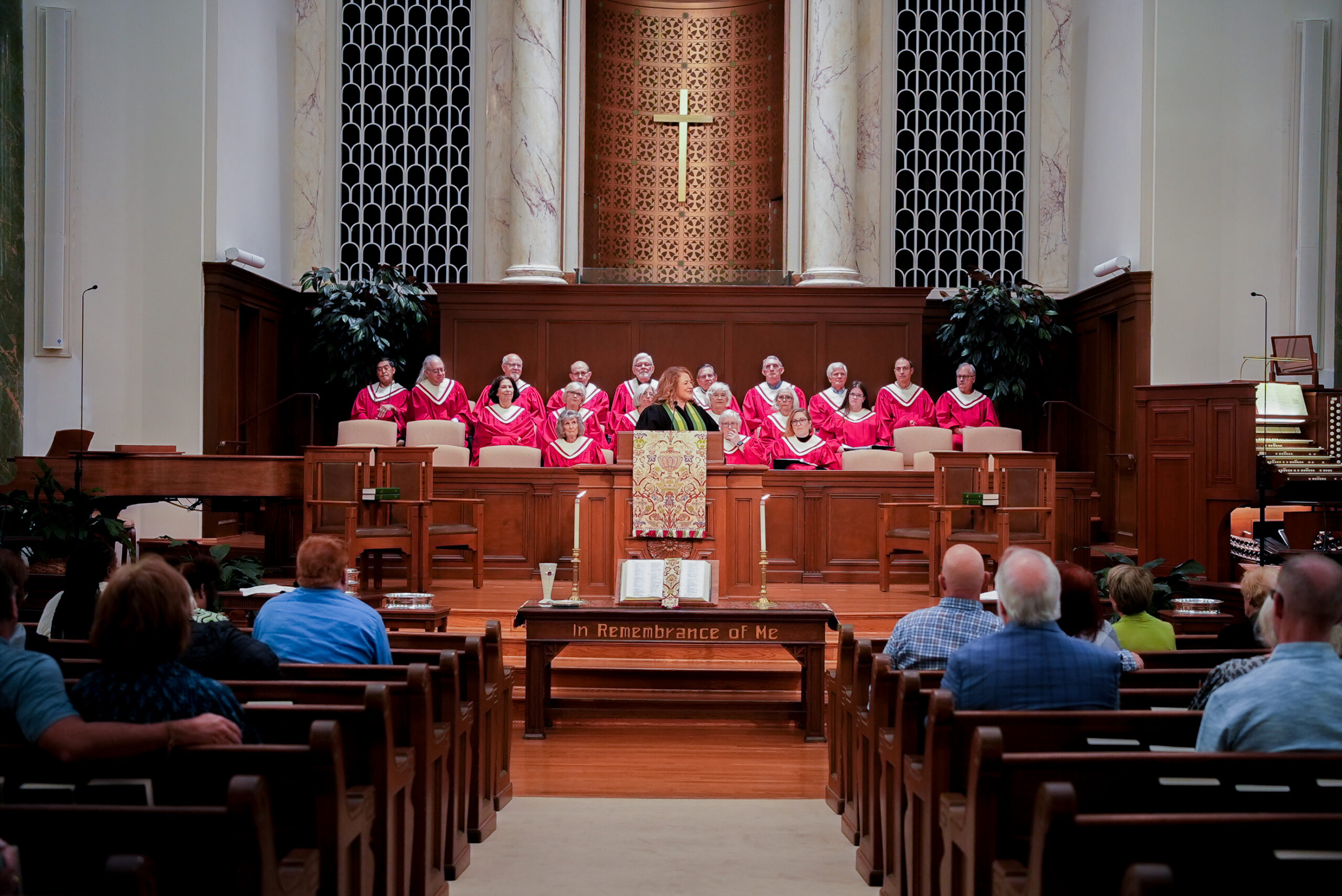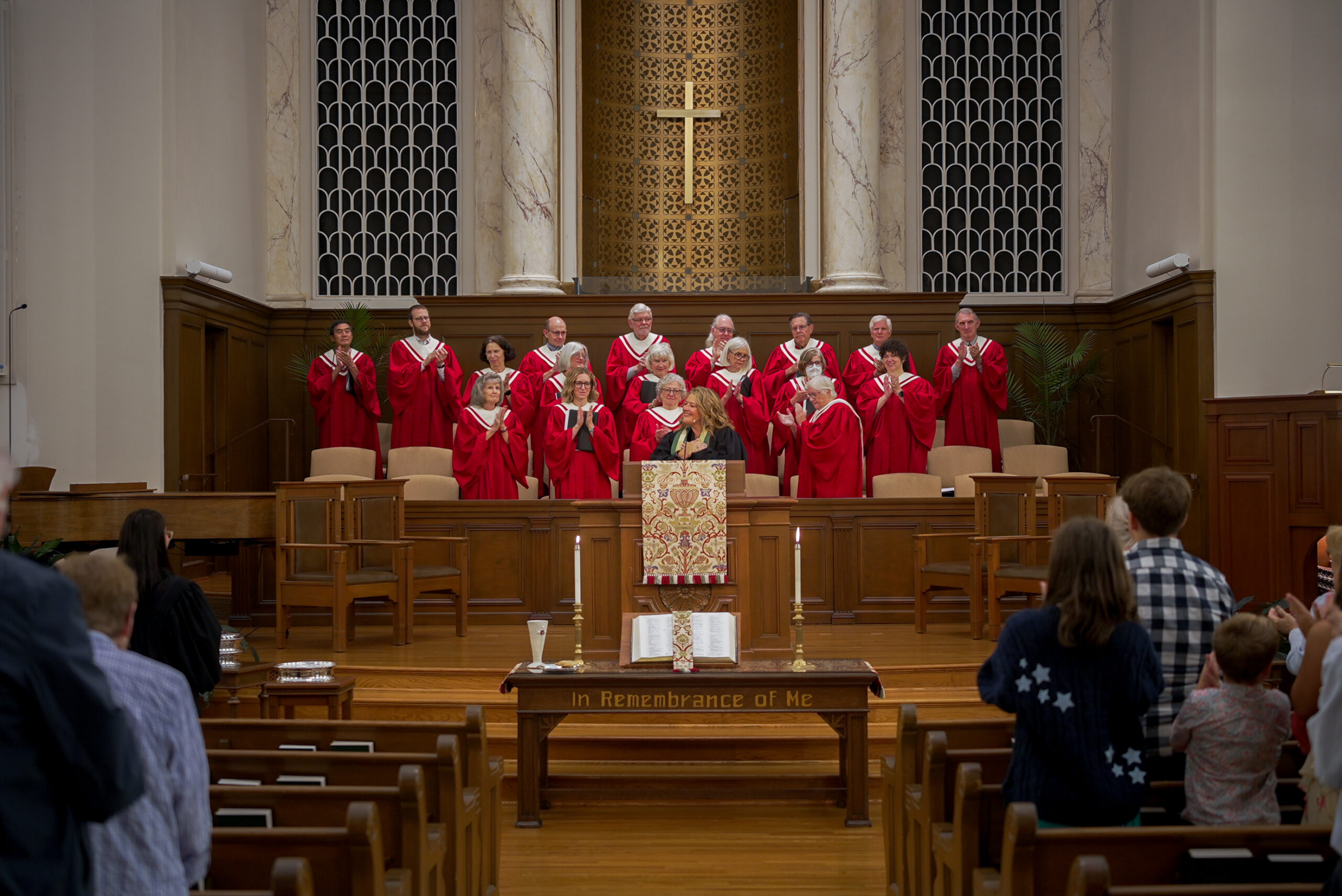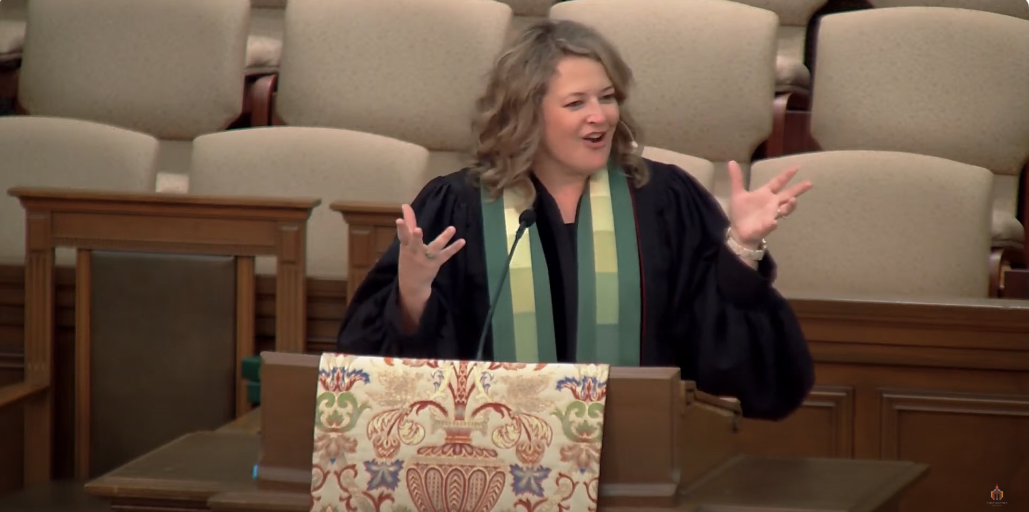IOn the first day of his film photography class at the University of
Florida, professor Jerry Uelsmann decided to do a semester-long experiment.
He divided his class into two groups – those on this side of the room were the
“quantity group,” and their assessment would come purely on the number of
photos submitted by each student. 100 photos would get an A, 90 a B, and so
on. Then those on the other side of the room became the “quality group,”
whose grade came purely on the excellence of their work. Their assignment?
Only one photo all semester, but in order to get an A, it had to be an image, as
Mary Poppins might say, that was ‘practically perfect in every way.’
As the semester ended, Dr. Uelsmann was surprised to discover that
actually the very best photos from his students came from the quantity
group, those who were playing with light and shadows, honing their skills of
composition and exposure, testing their learning and learning from their
mistakes. And what of the quality group? Well they’d spent their time
hemming and hawing over what makes for the very best image, “speculating
about perfection,” he said. Their final project at the end of the semester was a
whole bunch of theories, and lots of thoughts about photography, along with
one fairly mediocre photo.1
IIAuthor James Clear tells this story in his wildly successful book called
Atomic Habits, a story meant to illustrate the difference between being in
motion and taking action. Similar ideas, he names, but different impact.
Motion is in the preparation: planning, and strategizing, and learning, and
studying. Action produces an outcome.
Motion in the hands of a writer, James Clear says, is outlining 20 new
ideas for articles. Action is actually sitting and writing them. Motion in the
eyes of one wanting to get physically stronger is searching for a good exercise
plan, and designing the workout space at your house, and reading some
books on strength training, and even meeting with a personal trainer. Action
is actually working out.
Perhaps you can fill in the examples in your own life here. As I read this
part of Atomic Habits, I couldn’t help but to think of what I did when the
website PInterest first came out. Pretty positive I wiled away an
embarrassing number of hours of my winter Saturdays pinning all manner of
home design ideas – this color palette, that DIY plan – a feeling of home
renovation exhilaration that took over my planning mind, only to realize:
wait, now I have to actually DO these things!
James Clear is clear: motion matters. Planning and preparation are
essential for so many moves we make in this life. But if we’re being honest,
sometimes we spend more time in motion because it “allows us to feel like
we’re making progress without running the risk of failure. Motion makes you
feel like you’re getting things done,” Clear says, “but really you’re just
preparing to get something done. When preparation becomes a form of
procrastination, you need to change something. If you want to master a habit,
the key is to start with repetition, not perfection. You don’t need to map out
every feature of a new habit. You just need to practice it.”2
IIIOur eight week-long journey with Jesus through the Sermon on the
Mount comes to a close today, and I have to say, this has been such a
meaningful experience to walk through such an important piece of Jesus’
teachings with you, piece by piece, week by week. We’ve learned so much
about Jesus’ priorities in these weeks – care for the poor, the mourning, the
meek, concern for the angry and those in strained relationships, love not just
for neighbors but for enemies (!), attention toward how we pray and give and
prioritize and see, compassion for the worrying and correction for the
judgmental, putting forth of the narrow path and the good fruit as witness to
what matters most, that is God’s coming kingdom of heaven. And here, at the
Sermon’s end, we find Jesus talking about motion and action.
“Not everyone who says to me, ‘Lord, Lord’ will enter the kingdom of
heaven,” Jesus declares, “but only the one who does the will of my Father. For
everyone who hears these words and acts on them becomes like the wise
man who built his house on a rock, ensuring the strongest foundation for his
life when the storms inevitably come. But everyone who hears these words
and doesn’t act on them becomes like the foolish man whose house was built
on sand, such that the rains and winds and floods of life washed it right away.”
I don’t think it’s a coincidence that Jesus ends his Sermon here. Like
scholar Tom Long says, it’s as if he’s reminding his hearers that “they must not
just listen to Jesus’ words and then forget them, or even listen to Jesus’
words and merely cherish them as lovely ideas, but they must put Jesus’
words into action.”3 Jesus is telling his hearers, don’t just hear! He’s telling his
disciples, don’t just study! He’s telling his believers, don’t just believe! All
important and necessary, of course, but incomplete. It’s like what the Letter
of James will later reinforce: “be doers of the word, and not merely hearers
only.” Or what Bonhoeffer says on the front of our worship guide, “Jesus
doesn’t mean that the Sermon is to be discussed as an ideal, he really means
us to get on with it.”4 It’s no wonder that the reaction of the crowds after all
they’d heard and experienced was to be astonished, “for he taught them as
one having authority.”
IVSeveral of our Bible Study classes have been reading Cheri Mills’ Lent of
Liberation this Lenten season, doing the work, as the subtitle says, of
confronting the legacy of American slavery. Just a few days ago, we read
about the story of George Lewis, an enslaved man who without any seminary
education or theological training captured the spirit of Christianity in his
words. “They worshiped a good deal like the Methodists,” he described the
home church of the man who kept him in bondage, continuing, “and allowed
their members to swear heartily for slavery.”5
“Not everyone who says, “Lord, Lord,” will enter the kingdom of
heaven,” Jesus warns, “but only the one who does the will of my Father in
heaven.” George Lewis understood Jesus, who said that at the heart of
Christianity is practice. Not only the words we say, not only the truth we
believe, not only the prayers we pray, but rather the things we do! The
obedience we practice! The commandments we keep!
Several summers ago, we read through and I preached through
Dorothy Bass’s book, Practicing our Faith. In it, she says that “Christian
practices are things Christian people do together over time in response to
and in the light of God’s active presence for the life of the world in Christ Jesus.”6 You know these practices that she names. They’re the ordinary stuff
of everyday life: honoring the body, hospitality, sharing meals and resources,
keeping Sabbath, testimony, discernment, living in community, forgiveness,
healing, dying well, singing our lives. But as she reminds the reader, each of
these practices emerge from our experience with the presence of God, and
when woven together, these practices “suggest the patterns of a faithful
Christian way of life for our time.”7
These practices we do – those daily actions that move us beyond
motion, and put the way of Jesus into our hands, our lips, our texts, our
relationships – that’s what builds the foundation of our lives. Those are the
moments that prepare the footings, and pour the concrete, and level it up.
Those are the moments that help us “get on with it,” as Bonhoeffer says.
VYet “getting on with it” isn’t always that easy, right? Despite our best
efforts at the practices of our faith, we know all the reasons why we stay in
motion, rather than moving into action. As the old adage goes, “The best
becomes the enemy of the good.”
When asked to give, we know our narrative: I’m behind on my savings
goals, we say, and really need to get aggressive about my retirement account right
now. Since I can’t give a full 10% of my income to our church or other organizations
whose mission I believe in, I better just wait until I can before I give anything at all.
When asked to serve, we know our story: I wouldn’t know what to do
with a bunch of 2nd gradersin East Winston, we say, or the guy on the street who
asksfor money,so I probably shouldn’tstart responding to all these invitationsto
volunteer until I’ve figured that out.
When asked to trust, we know our excuses: don’t you remember what
happened last time?!, we say, and how hurt I got? I’m still mad about it! No no, not
doing that again, no matter what I lose by saying no.
When asked to confront, we know what we hide behind: looking
squarely at the failings of my country, or my race, or my gender, or my family, or my
denomination, or my life are just too painful, we say. Can’t I just read another book,
or listen to another podcast, or believe these thingsin my heart withoutsaying
something out loud about them?
When asked to love, we know what we protect: I’m just too scared at the
possibility of all that could happen, we say. I can’t bear the thought of failing, or
losing, or limits, or missing out, being confronted, or being wrong, or being seen, or
being abandoned. What if I give my life over to this all-consuming kind of love and
lose everything?
Yet despite the stories we tell ourselves, no manner of motion over
action will prevent the storms of our lives from descending. No manner of
avoidance will keep the rains from falling. No manner of delay will keep the
winds from blowing. No manner of faith will keep the storms from settling
into your life.
Oswald Chambers once said, “build up your character bit by bit by
attention to [Jesus’] words, then when the supreme crisis comes, you will
stand like a rock. The crisis does not come always, but when it does come, it is
all up in about two seconds; there is no possibility of pretense, you are
unearthed immediately.”8
For when we build our houses atop the expectation of security, or when
we frame our structures atop the promise of power, or when we construct a
life of pragmatism atop the expectation of predictability, or when we
assemble all the pieces of our lives atop the fruitless wish that just being a
good person and hoping for the best will be all we need, we shouldn’t be
surprised when our earth shatters with birth or death, with loss or grief, with
dreams deferred or hopes denied or relationships unraveled or worlds
unearthed. For those who want to save their life will lose it, and those who
lose their life for my sake will find it. For those who don’t stop at the motions
– plans, and prayers, and nerves, and worries, and yearnings, and
imagination, and admiration of Jesus, all beautiful and good in their own right
– but actually move into action – following in the way of Jesus, building upon
the dream of God in this world, practicing their faith through daily habits and
experiences – well theirs will be the firm foundation upon which to truly live.
VII bet you’ve heard the story before of the old carpenter ready to retire.
He’d been at it a very long time, and was ready to hang up his hammer and
nails. So he told his boss of his plans, of his dreams for leisurely breakfasts on
his back porch, travel with his wife, time to play in the yard with his
grandkids. Yes, he’d miss the paycheck, but it was time.
Well the carpenter’s boss understood, but was awfully sorry to see his
best worker go. He asked the carpenter, “could you build just one more house
as a personal favor to me?”
The carpenter grumbled inwardly as he thought to himself, “did you
hear about breakfast on the porch?” but agreed to do it. He didn’t put his
heart into it though – cutting corners where he could to shorten the job,
using cheaper materials he could get faster, just going through the motions
trying to get it done and settle into the life he dreamed. For anyone who
knew him, it was a sad way to end a meaningful, hard-working career.
When the carpenter finished the work and barely eked through the
building inspection, his boss showed up and – you know what happens next –
handed over the key to the front door. “This is your house,” he said. “My gift to
you.”9
VIIThis is the word of the Lord, we say. This is my kingdom, God says. This
is the Way of Life, Jesus says. This is the church, the Spirit says. Divine gifts to
you and you and you. Will you receive them? Amen.





